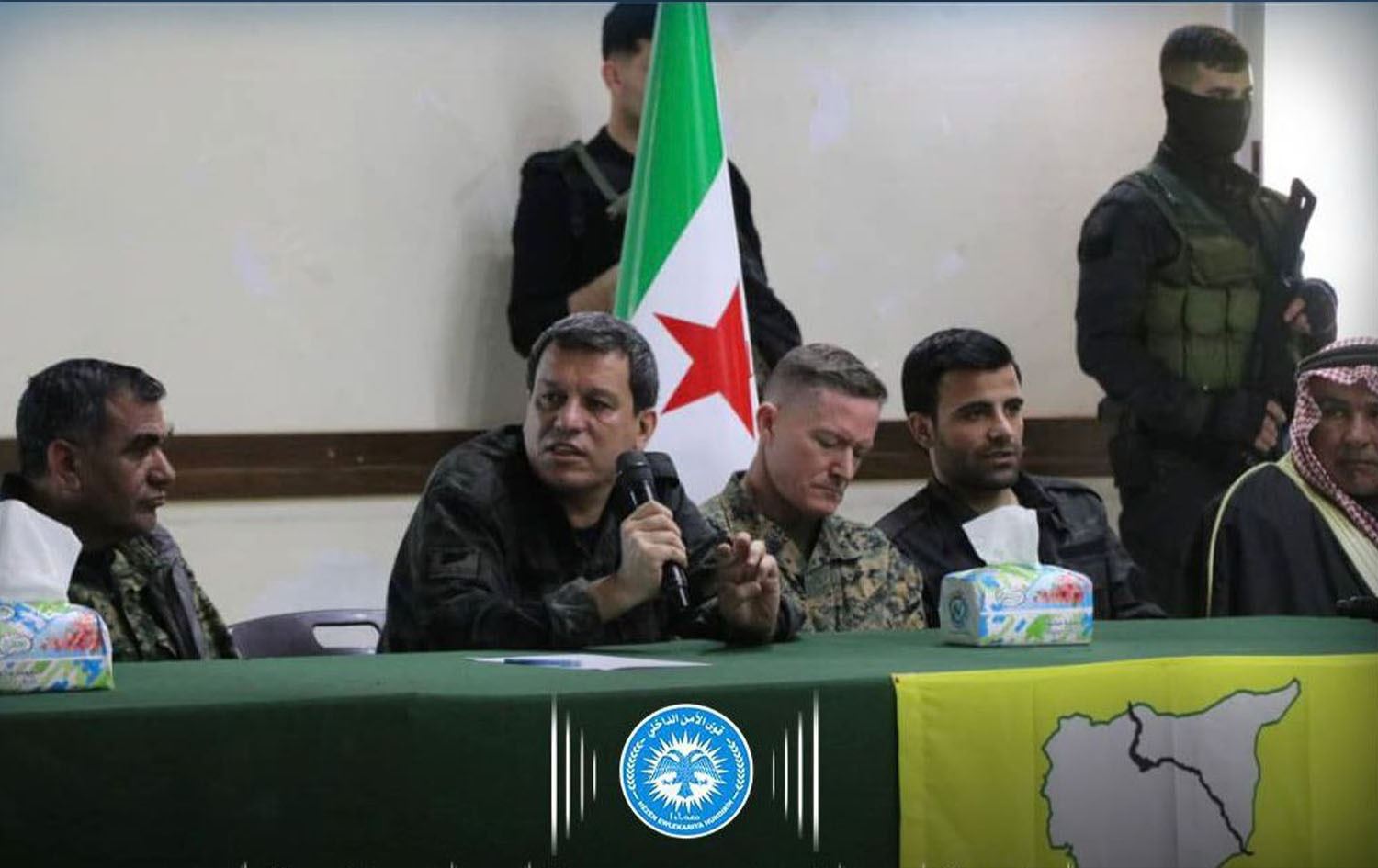
Mazloum Abdi, commander of the U.S-backed Syrian Democratic Forces (SDF), says 14 years of conflict have exhausted Syria’s highly centralized system and made deep, structural change unavoidable.
“Syria now needs a fundamental internal shift toward decentralization—one that allows every component of society to play its political and administrative role,” Abdi told the pro-government daily Al-Watan on Monday.
10 March Agreement
Abdi said the 10 March deal he reached with President Ahmed al-Shar’a grew out of meetings that began in Damascus late last December. Early rounds stalled, but the talks eventually produced a framework—still largely untested—for power-sharing.
Since the fall of Bashar al-Assad, Abdi argued, Syria has swung from the Russia-Iran axis toward an opposition-led camp. That geopolitical realignment, he claimed, reinforces the need for a new governance model based on local autonomy.
On Monday the SDF reported firefights with transitional-government units in the Deir Hafer area east of Aleppo after government forces allegedly attacked four SDF positions. “We exercised our right to defend our sites and fighters,” the SDF said in a statement carried by Reuters.
Kurdish sources say Washington is pushing Damascus and the SDF back to the negotiating table. According to those sources, U.S. Congressman Abraham Hamadeh told Abdi a new round of talks—backed by the Trump administration—will be held this month in Paris.
Hamadeh’s office said the goal is to move Syria away from “the old regime’s logic of intimidation and revenge” toward a system that protects the rights and freedoms of all communities. The congressman emphasized that Washington will keep communication channels open with “all Syrian actors committed to a peaceful solution” and that the SDF remains the United States’ principal partner against ISIS in the northeast.
Rising tensions nationwide
The diplomatic push comes amid a spate of violence, including deadly incidents in Sweida and coastal areas that have left thousands dead or wounded. U.S. officials say a credible negotiating process is essential to prevent further escalation and to “buy the time and space needed to embed genuinely inclusive governance” in any political transition.
Turkish concerns
Ankara views the SDF as the Syrian branch of the PKK terror group and fears that any decentralization formula could lock in a PKK-linked entity along its southern border. Foreign Minister Hakan Fidan has insisted the SDF must disarm and fold into Syria’s regular forces, warning that Turkish cross-border operations will continue until “every terrorist threat is neutralized.”
Turkish media say the upcoming Paris talks risk “legitimizing” the SDF unless they produce concrete steps toward disarmament and the hand-over of border zones. Ankara is also pressing Washington for guarantees that Kurdish fighters will neither keep heavy weapons nor control oil fields that could bankroll renewed insurgency inside Turkey.
